
Mathis James Reed was an American blues musician and songwriter. His particular style of electric blues was popular with a wide variety of audiences. Reed's songs such as "Honest I Do" (1957), "Baby What You Want Me to Do" (1960), "Big Boss Man" (1961), and "Bright Lights, Big City" (1961) appeared on both Billboard magazine's R&B and Hot 100 singles charts.
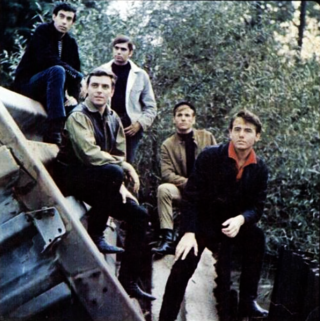
Jay and the Americans are an American rock group who formed in the late 1950s. Their initial line-up consisted of John "Jay" Traynor, Howie Kane, Kenny Vance and Sandy Deanne, though their greatest success on the charts came after Traynor had been replaced as lead singer by Jay Black and Marty Sanders were added to the line-up. They were inducted into the Vocal Group Hall of Fame in 2002.

Odds Against Tomorrow is a 1959 American film noir produced and directed by Robert Wise and starring Harry Belafonte, Robert Ryan and Ed Begley. Belafonte selected Abraham Polonsky to write the script, which is based on a novel of the same name by William P. McGivern. Blacklisted in those years, Polonsky had to use a front and John O. Killens was credited. Polonsky's screenwriting credit was restored in 1996 in his own name.
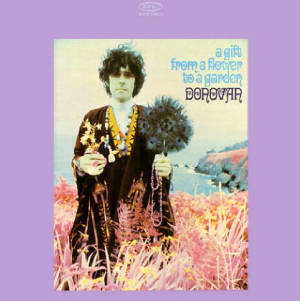
A Gift From a Flower to a Garden is the fifth album from Scottish singer-songwriter Donovan, released in December 1967 through Pye Records in the UK and Epic Records in the US. It marks the first double-disc album of Donovan's career and one of the first box sets in pop music. In the US, Epic also released the two discs separately as the stand-alone albums Wear Your Love Like Heaven and For Little Ones.

New York Rock is an off-Broadway musical by avant-garde artist Yoko Ono. It is a fictionalised account of her marriage to songwriter and Beatle John Lennon. The musical contains many songs from Ono's albums throughout the years, as well as several new tracks, "Warzone" and "Where Do We Go from Here", which were reworked for inclusion on Rising.

"Shapes of Things" is a song by the English rock group the Yardbirds. With its Eastern-sounding, feedback-laden guitar solo and environmentalist, antiwar lyrics, several music writers have identified it as the first popular psychedelic rock song. It is built on musical elements contributed by several group members in three different recording studios in the US, and was the first Yardbirds composition to become a chart hit; when released as a single on 25 February 1966, the song reached number three in the UK and number eleven in the US.

Ray Charles is the debut studio album by American pianist, vocalist, and band leader Ray Charles. Originally released in June 1957 on Atlantic Records, it was re-released under the title Hallelujah I Love Her So in 1962.

There's the Rub is the fifth studio album by rock band Wishbone Ash. It is the first album to feature guitarist-vocalist Laurie Wisefield, who would be a major part of the band's creative direction for the next 11 years. It also marked a change in sound. It was the band's first album to be recorded in America and was produced by producer Bill Szymczyk. Although the trademark twin guitars were still evident, the album had a more "American" feel with a smoother production sound. Nevertheless, after the disappointing critical response to the previous studio album, Wishbone Four, reviews for There's The Rub were much more positive.

Elvis Is Back! is the fourth studio album by American singer Elvis Presley, released on April 8, 1960 by RCA Victor. It was Presley's first album of new material since 1958's King Creole soundtrack, as well as his first to be recorded and released in stereophonic sound. The album marked Presley's return to music after his discharge from the U.S. Army.

Windfall is a 1974 country rock album by Rick Nelson and the Stone Canyon Band, Nelson's twenty-second studio album. The album peaked at No. 190 on the Billboard albums chart.

The Young Rascals is the debut album by the American rock band the Young Rascals. The album was released on March 28, 1966, and rose to No. 15 on the Billboard Top LPs chart and No. 10 in Cashbox.

Golden Apples of the Sun is the second studio album by American singer and songwriter Judy Collins, released by Elektra Records in 1962.
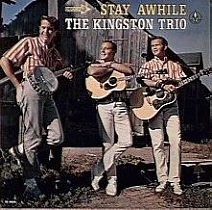
Stay Awhile is an album by the American folk music group the Kingston Trio, released in 1965. It was their second release on the Decca label. It continued their downward slide in the charts, reaching number 126 on the Billboard Pop Albums chart. The single "Yes I Can Feel It" b/w "Stay Awhile" did not chart.
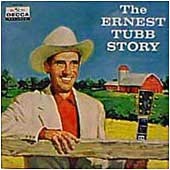
The Ernest Tubb Story is an album by American country singer Ernest Tubb, released in 1959. It was originally released as a double-LP album.
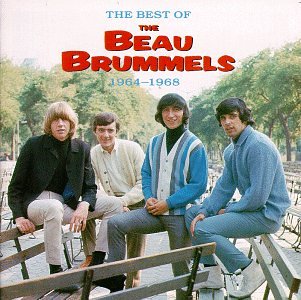
The Best of the Beau Brummels 1964-1968, sometimes titled The Best of the Beau Brummels: Golden Archive Series, is a compilation album by American rock band The Beau Brummels. Released in 1987 by Rhino Records, the album features 18 songs, including the band's biggest hit singles—"Laugh, Laugh", "Just a Little", "You Tell Me Why", and "Don't Talk to Strangers"—as well as songs which never appeared on an album before this collection, such as the 1967 single "Here We Are Again".

Sam Cooke at the Copa is a live album by American singer-songwriter Sam Cooke. The album was released in 1964 in the United States by RCA Victor. It was Cooke's only live album to be released during his lifetime; Live at the Harlem Square Club, 1963, although recorded earlier, was not released until 1985. Copa was reissued in 2003, with remastered sound.

"Come a Little Bit Closer" is a song by the 1960s rock and roll band Jay and the Americans. It reached number 3 on the Billboard Hot 100 on November 21, 1964, making it the band's highest-charting single. It also peaked at number 4 on the Cashbox chart and at number 1 on RPM's singles chart. The song was their first top 5 recording in two years, since 1962's She Cried.

I'm Jimmy Reed is an album by blues musician Jimmy Reed, compiling twelve tracks originally issued as singles between 1953 and 1958, that was released by the Vee-Jay label.

The Five Faces of Manfred Mann is the debut British and second American studio album by Manfred Mann. It was first released in the United Kingdom on 11 September 1964 by His Master's Voice. In late October/early November, the album was released in Canada by Capitol Records. The Canadian track listing was almost the same as the UK version, except it included the hit "Do Wah Diddy Diddy" instead of "I've Got My Mojo Working". The record has been called "one of the great blues-based British invasion albums; it's a hot, rocking record that benefits from some virtuoso playing as well".
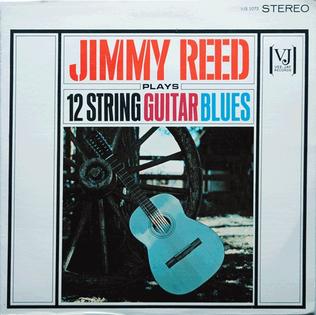
Jimmy Reed Plays 12 String Guitar Blues is an album by blues musician Jimmy Reed recorded in Chicago in 1963 and released by the Vee-Jay label.




















